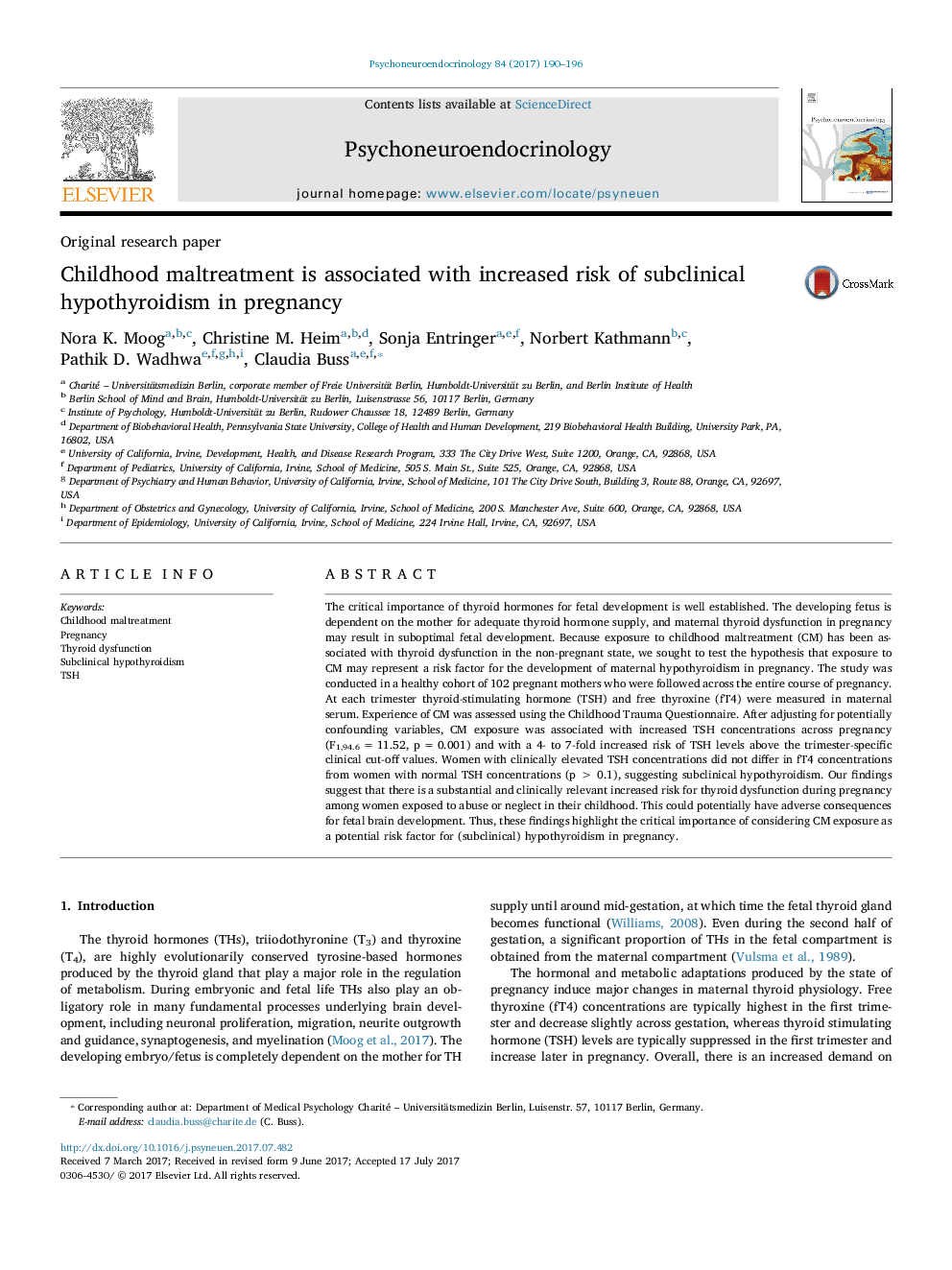ترجمه فارسی عنوان مقاله
بدرفتاری دوران کودکی با افزایش خطر کم کاری تیروئید در دوران بارداری همراه است
عنوان انگلیسی
Childhood maltreatment is associated with increased risk of subclinical hypothyroidism in pregnancy
| کد مقاله | سال انتشار | تعداد صفحات مقاله انگلیسی |
|---|---|---|
| 127694 | 2017 | 7 صفحه PDF |
منبع

Publisher : Elsevier - Science Direct (الزویر - ساینس دایرکت)
Journal : Psychoneuroendocrinology, Volume 84, October 2017, Pages 190-196

